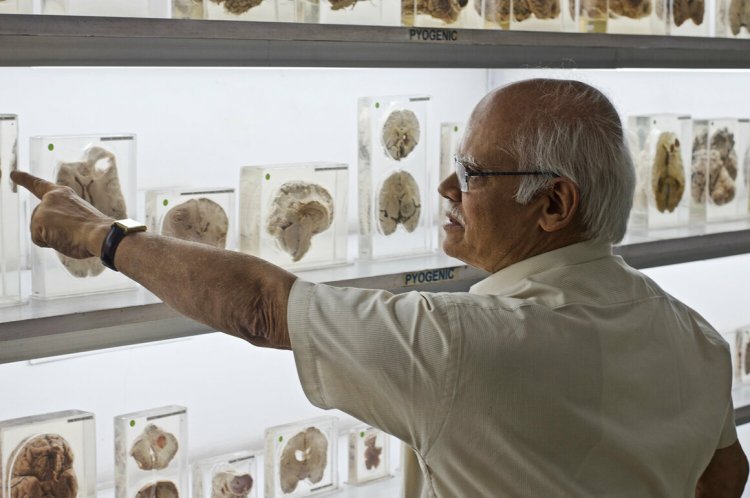NIMHANS Bangalore- The Only Brain Museum in India!!
The Brain Museum at NIMHANS, which is said to be the only one of its type in the country, provides visitors a look inside the grey matter through guided tours and brain specimens. NIMHANS Bangalore is the only brain museum in India that has become a research hub for all young research enthusiasts.

Have you visited India's Only Brain Museum, which is located in Bangalore?
The city boasts a plethora of museums, ranging from a sound and music center to a scientific one. Did you even know, though, Bangalore is home to India's sole brain museum? Yes, absolutely! The Brain Museum, which is housed within NIMHANS and run by the institute's Neuropathology section, is where you can get up and personal with the amazing organ.
Over 400 brains have been collected over the last 35 years or so and are on exhibit here! The museum is only open on Wednesdays and Saturdays and offers guided tours given by members of the department. The guided tour begins with an introductory talk in which you may learn more about the human brain by looking at a real specimen. You'll even be able to touch and feel it while learning about the many functions and parts! Then there are the rows of see-through jars filled with various types of brains. While you'll discover intriguing animal specimens like a chicken brain and a rat brain, the portions of brains are afflicted by various traumas, neurological diseases, and various neurological conditions.
Hundreds of specimens are arranged on LED-backlit shelves that run the length of three sides of the single, large room, all of which are similarly preserved and displayed. Cross-sections of brains with aneurysms, fungus, bacterial infection, and trauma are among them. Tumours have twisted in some of them, leaving thick fleshy mushroom stems poking through the softer, crumpled brain matter. Others have shrunk due to congenital abnormalities or Alzheimer's disease. Entire brain hemispheres are contained in cuboid specimen containers, which are spidered with thicker darker veins.
The scientists and technicians are from India's National Institute of Mental Health and Neurosciences, or NIMHANS, which houses both the museum and its twin project, the ''Brain Bank''. In 1979, Dr. Shankar began working at NIMHANS as a junior researcher. Dr. Shankar, a neuropathologist, has been involved with the museum since its inception. That same year, he and other pathologists started the permanent collection: after the autopsy, brains with intriguing, readily apparent diseases were gathered, and the brains were immersed in a formalin solution for at least three weeks until hard enough to survive on display.
For years, the display was housed in a tiny room, with only medical experts, researchers, and students having access. “It is a unique opportunity for students to view specimens like this. They come across a patient. They presume what has happened after the patient dies,”. “However, no assumptions are made here. says Dr. Shankar''. The museum was relocated to a bigger area on the NIMHANS campus in 2010, when a new building, the Neurobiology Research Centre, was inaugurated. Dr. Shankar and his colleague, Dr. Anita Mahadevan, saw an opportunity to make the display more accessible to the general public. Thousands of people have visited the display by 2014. It had a new goal: “Neuroscience Literacy” for the general public.
This museum is dedicated to the brain and its stories,”
The term "demystification" is used by Shankar and Mahadevan to describe what they believe the museum will accomplish. It's a word with a specific, practical relevance in India, where brain diseases are frequently addressed with stigma and superstition. “Many people believe that neurological disorders are the work of an evil spirit. This museum will demystify all the superstitions across various neurological conditions.
The trip lasts around two hours and is limited to 35-40 people. While spending a day staring at brains may not be everyone's cup of tea, if you're looking for something unique and educational, this is the place to go.
Address: Hosur Main Road, Sattar Layout, Wilson Garden
Opening Hours: Wednesdays, 2:30 pm to 4:30 pm and Saturdays, 10:30 am to 12:30 pm and 2:30 pm to 4:30 pm
Price: Free entry
Contact: 080 26563357


 Local BangaloreTeam
Local BangaloreTeam 









